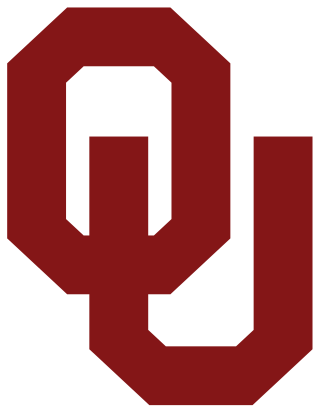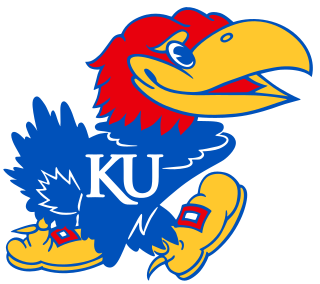
Fielding Harris Yost was an American college football player, coach and athletics administrator. He served as the head football coach at: Ohio Wesleyan University, the University of Nebraska, the University of Kansas, Stanford University, San Jose State University, and the University of Michigan, compiling a coaching career record of 198–35–12. During his 25 seasons as the head football coach at Ann Arbor, Yost's Michigan Wolverines won six national championships, captured ten Big Ten Conference titles, and amassed a record of 165–29–10.

Robert Simon Devaney was a college football coach. He served as the head coach at the University of Wyoming from 1957 to 1961 and at the University of Nebraska from 1962 to 1972, compiling a career record of 136–30–7 (.806). Devaney's Nebraska Cornhuskers won consecutive national championships in 1970 and 1971 and three consecutive Orange Bowls.
The phrase "Game of the Century" is a superlative that was applied to several college football contests played in the 20th century, the first full century of college football in the United States. It is a subjective term applied by sportswriters to describe the most notable games of the period.

The Nebraska Cornhuskers football team competes as part of the NCAA Division I Football Bowl Subdivision, representing the University of Nebraska–Lincoln in the West Division of the Big Ten. Nebraska plays its home games at Memorial Stadium, where it has sold out every game since 1962.

The 2001 NCAA Division I-A football season was the first college football season of the 21st century. It ended with the University of Miami winning the national title for the fifth time.

The Oklahoma Sooners football team represents the University of Oklahoma in college football at the NCAA Division I Football Bowl Subdivision level in the Big 12 Conference. The program began in 1895 and is one of the most successful in history, having won 944 games and possessing a .725 winning percentage, both sixth all-time. Oklahoma has appeared in the AP poll 897 times, including 101 No. 1 rankings, both third all-time. The program claims seven national championships, 50 conference championships, 167 first-team All-Americans, and a record-tying seven Heisman Trophy winners. The school has had 29 former players and coaches inducted into the College Football Hall of Fame and holds the record for the longest winning streak in Division I history with 47 straight victories. Oklahoma is also the only program with which four coaches have won more than 100 games each.

The Kansas Jayhawks football program is the intercollegiate football program of the University of Kansas. The program is classified in the National Collegiate Athletic Association (NCAA) Division I Bowl Subdivision (FBS), and the team competes in the Big 12 Conference. The Jayhawks are led by head coach Lance Leipold.
The 1980 NCAA Division I-A football season saw a university from the state of Georgia take its first national title since 1942.
The 1971 NCAA University Division football season saw Coach Bob Devaney's Nebraska Cornhuskers repeat as national champions. Ranked a close second behind Notre Dame in the preseason poll, Nebraska moved up to first place the following week, remained there for the rest of 1971, and convincingly won the Orange Bowl 38–6 in a No. 1 vs. No. 2 game against Alabama.
The 1984 Rose Bowl game, played on Monday, January 2, was the 70th edition. The unranked UCLA Bruins upset the #4 Illinois Fighting Illini by a score of 45–9.
The 1975 NCAA Division I football season saw University of Oklahoma repeat as national champion in the Associated Press (AP) writers' poll, and were ranked No. 1 in the United Press International (UPI) coaches' poll, just ahead of runner up Arizona State, runner-up in both final polls, despite having an undefeated 12–0 season and a win over Nebraska in the Fiesta Bowl.
The 1971 Nebraska vs. Oklahoma football game was the 51st edition of the rivalry, one of several labeled as a "Game of the Century." The Big Eight Conference matchup was held on Thursday, November 25, 1971, in Norman, Oklahoma.
The 1946 college football season was the 78th season of intercollegiate football in the United States. Competition included schools from the Big Ten Conference, the Pacific Coast Conference (PCC), the Southeastern Conference (SEC), the Big Six Conference, the Southern Conference, the Southwestern Conference, and numerous smaller conferences and independent programs. The season saw the return of many programs which had suspended play during World War II, and also the enrollment of many veterans returning from the war.
The George Washington Colonials football team represented George Washington University of Washington, D.C. in college football competition from 1881 to 1966. The team's home field in the final six seasons was District of Columbia Stadium, shared with the Washington Redskins of the National Football League.
The 1954 Nebraska Cornhuskers football team was the representative of the University of Nebraska and member of the Big 7 Conference in the 1954 college football season. The team was coached by Bill Glassford and played their home games at Memorial Stadium in Lincoln, Nebraska.
The Nebraska Wesleyan Prairie Wolves football team represents Nebraska Wesleyan University in college football at the NCAA Division III level. The Prairie Wolves are members of the American Rivers Conference (A-R-C), fielding its team in the A-R-C since 2016 when it was named the Iowa Intercollegiate Athletic Conference (IIAC). Nebraska Wesleyan plays home games at Abel Stadium in Lincoln, Nebraska. The team's head coach is Brian Keller, who took over the position for the 1996 season.
The Pepperdine Waves football program represented Pepperdine University, then located in Los Angeles, California, in college football. Pepperdine discontinued football in 1961, citing cost concerns.
The 1946 Pepperdine Waves football team represented George Pepperdine College as an independent during the 1946 college football season. It was Pepperdine's first year of playing football. The Waves were led by first-year head coach Warren Gaer. Pepperdine finished the regular season 7–1 and defeated Nebraska Wesleyan in the 1947 Will Rogers Bowl.
The Texas Longhorns football team represents the University of Texas at Austin in college football.
The 1946 Nebraska College Conference football season was the season of college football played by the nine member schools of the Nebraska College Conference (NCC) as part of the 1946 college football season. The Doane Tigers from Crete, Nebraska were led by head coach James L. Dutcher and compiled an overall record of 6–2–1 with a mark of 5–0–1 in conference play, winning the NCC championship. The Nebraska Wesleyan Plainsmen were led by head coach George W. Knight. They finished second in the conference with a 5–0–2 record in conference play and a mark of 7–0–3 overall in the regular season. They then lost to Pepperdine in the Will Rogers Bowl.





